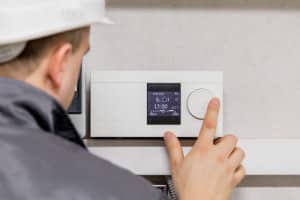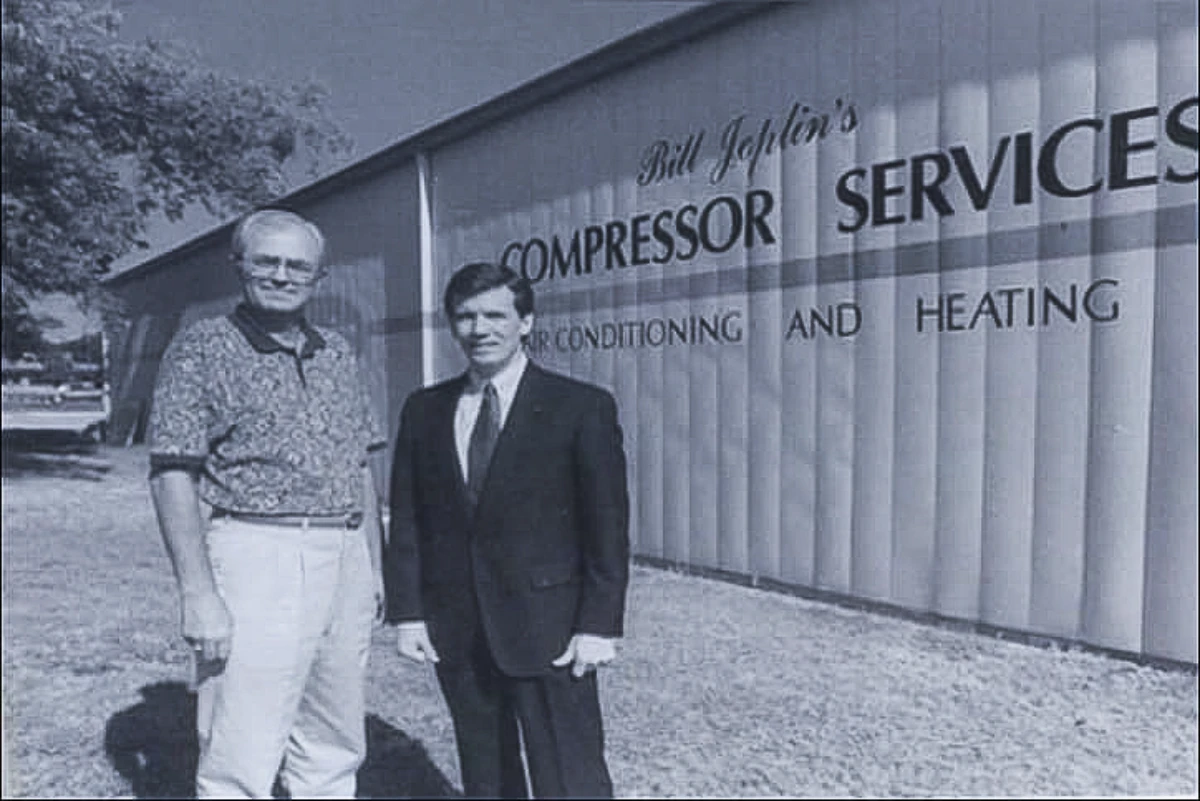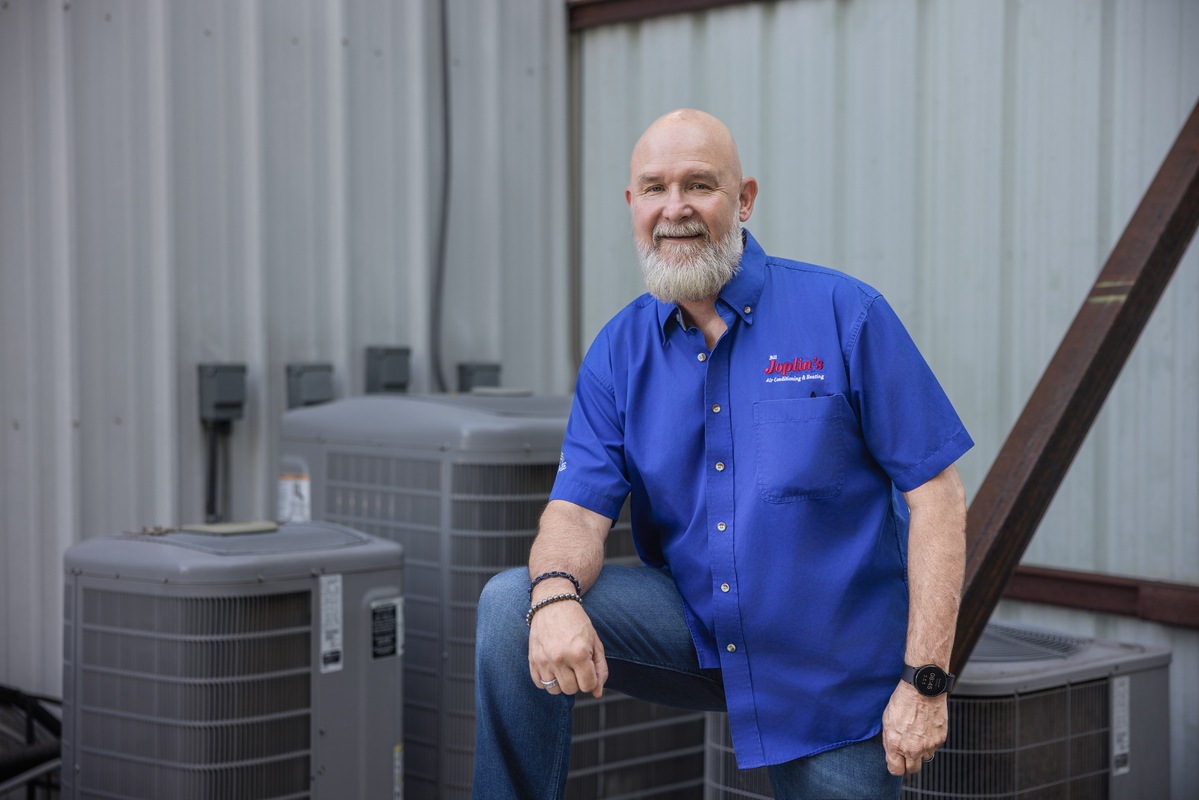 Unless you enjoy paying high electricity bills, efficient air conditioning is a must when you live in an area with summers as hot and humid as Frisco’s. While having a high-efficiency air conditioner helps, there’s a lot more you can do to cut down on the energy it takes to stay comfortable.
Unless you enjoy paying high electricity bills, efficient air conditioning is a must when you live in an area with summers as hot and humid as Frisco’s. While having a high-efficiency air conditioner helps, there’s a lot more you can do to cut down on the energy it takes to stay comfortable.
Don’t Make Your A/C’s Job Harder
By producing less heat indoors, you’ll reduce your air conditioner’s workload and energy requirements. Avoid running heat-producing appliances, such as the oven or clothes dryer, during hot periods of the day. When possible, use them in the morning or evening when it’s cooler. After you shower or cook, run exhaust fans for a few minutes to remove built-up heat and humidity so your air conditioner doesn’t have to.
Windows are responsible for up to 30 percent of your home’s heat gain, so it’s well worth investing in heat-blocking window treatments for more efficient air conditioning. Applying solar screens outside your windows can reduce their heat gain by up to 70 percent. These are especially helpful on sunny east- and west-facing windows.
Reflective blinds can cut heat gain by up to 45 percent when closed. They also give you the advantage of having control over exactly how much light you let in. Heavy drapes with heat-reflective backings hold back around 33 percent of the incoming heat, although they’re not as adjustable as blinds.
Switch from traditional incandescent light bulbs to compact fluorescent (CFL) bulbs or LED lights. In addition to being more energy efficient and lasting longer than traditional bulbs, CFLs and LEDs also burn cooler. That means less heat in your home for your air conditioner to deal with.
Even when you’re running your A/C, keep ceiling fans on in occupied rooms. While fans don’t actually lower the air temperature, the wind chill effect they create makes you feel between 5 to 8 degrees cooler. That means you can raise your thermostat temperature to save energy with no loss of comfort.
Keep More Heat Out
Improving your home’s energy efficiency is another way to enjoy more efficient air conditioning in summer and more efficient heating in winter. Air leaks around your home let hot, humid air in so your A/C has to work constantly to remove it. In winter, these leaks let your warm air escape. Common locations for leaks include:
- Windows and doors
- Appliance and exhaust vents
- Points where utility lines enter the house
- Staircases set against exterior walls
- The attic, including the access hatch, knee walls and utility line penetrations
- Basement rim joists
- The foundation sill plate on your home’s exterior
These can be sealed with caulk for non-moving parts or weatherstripping for moveable parts of doors and windows.
Air ducts should also be part of your home air sealing job. Leaks often occur between duct connections and where the ductwork meets the air handler, air registers and vents. These not only let out your conditioned air so less of it reaches your rooms, but they also encourage moisture problems in your attic and basement. Sealing duct joints with mastic solves this problem.
After air sealing your home, look for areas that could benefit from more insulation. Because the attic accumulates so much heat, good insulation here is essential for keeping the heat out of your living space. With less heat seeping into your home, you’ll enjoy more efficient air conditioning.
Attics in the Frisco area should be insulated to between R-30 and R-60 level, which amounts to around 10 inches of fiberglass batts. If your attic has less, either lay more batts or rent a blower machine to install loose-fill, blown-in insulation.
Your walls are another place to consider adding more insulation. If you’re not sure how well insulated your walls are, contact a heating and cooling technician about performing a home energy audit. This assessment of your home’s energy efficiency includes scans with an infrared camera. The resulting images help your technician pinpoint areas that lack insulation.
Give Your System the Care It Needs
Even the newest, highest-efficiency air conditioners require regular maintenance to continue operating at top efficiency. One of the easiest ways to help your system achieve more efficient air conditioning is to stay on top of your air filter changing schedule. A dirty filter makes it harder for the blower fan to pull in air, increasing the amount of energy the motor uses.
Each month, check the air filter. If you see a layer of dust, replace or wash the filter, depending on the type your system uses. One-inch fiberglass filters usually need replacing monthly, while higher-efficiency pleated models can last several months.
The outdoor condenser unit also requires good airflow to maintain its efficiency. When dead leaves, grass clippings and other yard debris accumulate on the unit’s exterior fins, they impede airflow. Periodically use a stiff brush to remove this debris. At the start of each new cooling season, remove the top of the unit and use a wet vac to remove dirt from inside the unit. Then, using a light stream of water from a hose, rinse down the fins from within the unit.
At least once a year, check the indoor evaporator coil. Dust on the evaporator coil insulates it from the air, impairing its ability to absorb heat. Even a fine layer of dust can measurably reduce the coil’s efficiency. If you see dust, clean the coil either with foaming coil cleaner or compressed air. If you’re not familiar with how these components are built, leave the cleaning to a pro. Improper cleaning can drive dirt deeper into the coil or damage it.
Even with proper care from you, your air conditioner still needs an annual professional inspection and cleaning. Every year you skip professional care could knock your system’s efficiency down by 5 percent. A technician can access areas you can’t and spot efficiency problems you might overlook.
Professional care that helps you achieve more efficient air conditioning includes:
- Cleaning the blower fan motor
- Testing the motor voltage and start-up amp draw
- Measuring the refrigerant charge and pressure
- Checking the airflow across both coils
- Tightening loose wires and electrical connections
- Testing the thermostat calibration
While regular maintenance prolongs the life of your air conditioner, once a system is more than 10 years old, it’s nearing the end of its life span. It’s also less efficient than recently manufactured systems. If your A/C is older or requires unplanned maintenance more than once a year, consider upgrading to a newer model. Upgrading a 10-year-old air conditioner could cut your cooling bills by 20 to 40 percent.
Help Your System Perform Better
Using a programmable thermometer can also help you control your cooling and heating costs. Setting the thermostat above 78 degrees for at least 8 hours a day can shave 1 to 3 percent off cooling costs per degree. When you’re not home, leaving the A/C off altogether will save you more than just raising the temperature.
Having to adjust the thermostat every day, however, is a nuisance, and the days you forget mean no savings. A programmable thermostat helps maximize both savings and comfort by automatically adjusting your temperature according to the schedule you program in. For instance, you can program the A/C to stay off all day and come on an hour before you get home so you’ll arrive to a comfortable house.
High indoor humidity that makes you feel hotter can also contribute to increased cooling bills if you lower your thermostat temperature in search of relief. If you often feel hot and sticky indoors in the summer, or you notice other signs of excess moisture, such as mold on your ceilings, take steps to reduce your home’s humidity.
Improving your home ventilation is one way. If you currently use only exhaust vents, ask your heating and cooling technician about installing a balanced whole-house ventilation system. For more serious humidity problems, you may need a whole-house dehumidifier.
For more information on efficient air conditioning, check out the energy-saving cooling solutions available from Bill Joplin’s Air Conditioning & Heating indoor air quality solutions, or call 888-414-4655.


